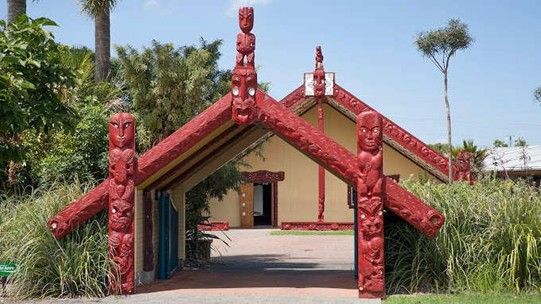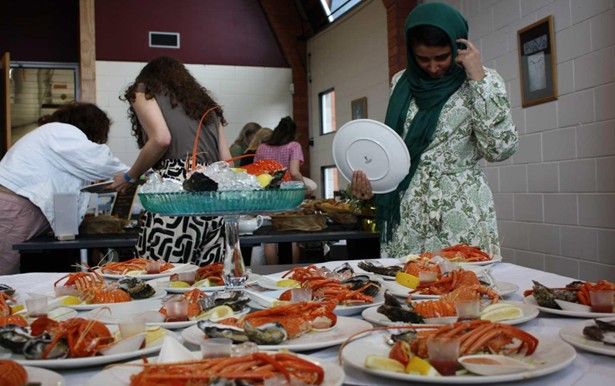Marae: Commercial Activities in Auckland & New Zealand
Marae: Commercial Activities in Auckland & New Zealand
Marae, the traditional meeting grounds of the Māori people, are deeply rooted in cultural heritage and serve as spiritual and communal hubs for Māori communities. Traditionally, marae have been spaces for important gatherings, ceremonies, and celebrations.
However, in recent years, they have also evolved to incorporate a range of commercial activities that allow them to remain financially sustainable while continuing to serve as cultural strongholds. Across New Zealand, marae now host an array of commercial enterprises, including cultural tourism, educational workshops, wellness programs, and accommodation services.
These initiatives not only generate revenue for the marae but also foster cultural exchange, helping visitors gain a deeper understanding of Māori traditions, history, and values. By blending tradition with innovation, marae continue to thrive in modern society, offering experiences that are both immersive and educational.
Indigenous Tourism- Private Small Group Tours

Marae-based cultural tourism offers visitors authentic experiences of Māori culture and traditions. At Wolfgramm Holdings, their Marae Day Workshop immerses teams in Māori culture, strengthening connections, fostering unity, and creating meaningful cross-cultural understanding.
These immersive experiences often include traditional welcomes (pōwhiri), cultural performances, and hāngī meals.
Some marae, like Nga Kete Marae in Auckland, NZ, have modernized their facilities to accommodate students, corporates and tourists while maintaining cultural authenticity, with some Marae offer options for overnight stays, birthdays, and weddings.
- Visitors can participate in interactive activities exploring Māori stories, songs, and basic Te Reo Māori language.
- Many marae-based tourism programs emphasize cultural sharing and understanding.
- Some marae offer specialized educational programs for students from preschool to tertiary levels.
- Tourists are advised to respect marae protocols, such as removing shoes before entering the wharenui (meeting house) and seeking permission before taking photos.\
## Kotahitanga Principles of Leadership Workshop
Marae-based leadership programs offer unique opportunities for corporate and senior executives to engage with kotahitanga principles of leadership as well as cultural values.
These immersive experiences, delivered by Wolfgramm Holdings who are based in Auckland, provide a transformative space for leaders to learn from senior Māori mentors and connect with their cultural roots.
Participants engage in wānanga (learning sessions) at beautiful marae across the country, exploring concepts like whakawhanaungatanga (relationship building) and the importance of mauri (life force) in organizational leadership
- Programs often include pōwhiri (welcome ceremonies), cultural performances, history lessons, specialized workshops and hangi meals.\
- Leaders gain insights into Māori worldviews and their application to modern business challenges.
- Workshops cover topics such as communication, facilitation, and building influence within diverse teams.
- Leaders develop skills that they can apply Kotahitanga principles of leadership to their organizations.
- These experiences foster a deeper understanding of bicultural leadership in Aotearoa New Zealand
Haka & Waiata Workshops
Māori performing arts, known as kapa haka, are showcased in various events throughout New Zealand, offering visitors immersive cultural experiences.
The pinnacle of these events is Te Matatini, often referred to as the \"Olympics of kapa haka,\" which takes place biannually.
The next Te Matatini is scheduled for February 24 to March 1, 2025, in Taranaki, with tickets typically selling out quickly.
- Auckland Art Gallery hosts \"Marae in the Sky,\" an immersive dance and music performance centered on Matariki, featuring world-class choreography, waiata, and music.
- Rotorua, known as the birthplace of Māori tourism, offers numerous cultural experiences, including performances at Te Puia.
- The Auckland Museum and Waitangi Treaty Grounds provide daily cultural performances as part of their entry packages, offering insights into Māori culture through song, dance, and traditional weaponry demonstrations.
Traditional Weaving Workshops
Traditional Māori weaving demonstrations offer visitors a captivating glimpse into the ancient art of raranga, showcasing techniques like whatu, tāniko, and tukutuku.
These interactive experiences often take place at cultural centers, museums, and marae, where skilled weavers demonstrate the intricate process of creating kākahu (cloaks), kete (baskets), and whāriki (mats) using native materials such as harakeke (New Zealand flax).
Visitors can observe the meticulous preparation of fibers, learn about the cultural significance of different patterns, and in some cases, participate in hands-on workshops to create their own small woven taonga (treasure).
- Demonstrations often include explanations of tikanga (protocols) associated with harvesting and weaving.
- Many venues, like Te Puia in Rotorua, offer regular weaving demonstrations as part of their cultural experiences.
- Some workshops allow participants to create their own small kete or flax flowers in these sessions.
- These experiences not only preserve traditional skills but also promote understanding of Māori culture and values.\
Marae Poi Workshops
Poi making classes at marae offer visitors an immersive cultural experience, combining traditional craftsmanship with storytelling.
These workshops, led by skilled artisans like Shelly Bell and Tia Bell, teach participants how to create their own poi using both traditional and modern materials.
Attendees learn about the rich whakapapa (genealogy) of poi, its cultural significance, and its evolution from a warrior training tool to a performance art.
\
- Classes typically cover the creation of both short and long poi.\
- Participants learn to weave cords, form the poi head, and attach tassels.\
- Some workshops, like those at Wolfgramm Holdings, explore the connection between poi and Māori visual arts.\
- Family-friendly sessions encourage intergenerational learning and cultural appreciation.\
Indigenous Wellbeing Workshops
Marae-based wellbeing workshops are increasingly popular, offering holistic approaches to health grounded in Te Ao Māori perspectives. These workshops often combine traditional Māori healing practices with modern wellness concepts, addressing physical, mental, and spiritual aspects of health.
Manawa Ora Mirimiri, for example, facilitates workplace training that introduces participants to Rongoā Māori, Mirimiri, and Romiromi, teaching wellness from a uniquely cultural standpoint.
Many of these workshops emphasize the importance of connecting with the whenua (land) and wai (water), promoting physical activity outdoors as a means of enhancing overall wellbeing.
Some programs, like the Whai Oranga initiative at Taahuna Pa Marae, pair individuals with long-term health conditions with personal trainers, fostering reciprocal learning experiences that encompass fitness goals and Māori cultural knowledge.
These marae-based services not only support individual health but also strengthen community bonds and cultural connections, embodying the whānau-centered approach central to Māori concepts of wellbeing.
Hāngī Catering at Marae

Hāngī, the traditional Māori earth oven cooking method, has evolved into a popular catering option and cultural experience for both locals and tourists. Many Māori-owned businesses now offer hāngī catering services for events and celebrations, providing authentic, steam-cooked meals prepared in the traditional manner.
These services often include not just the food, but also cultural performances and educational components, allowing guests to learn about Māori customs and traditions while enjoying the feast.
Hāngī workshops and experiences are available in various locations, such as Rotorua, where visitors can participate in the preparation process and learn about the cultural significance of this cooking method.\
Some venues, like the Tūpuna Maunga Authority in Auckland, offer bookable hāngī pits where groups can prepare their own hāngī under expert guidance, fostering community engagement and cultural exchange.\
Innovative approaches to hāngī, such as fusion cuisine and modernized cooking techniques, are being explored by Māori chefs to bring this traditional method to a wider audience while maintaining its cultural integrity.
Marae Accommodation Services

Marae Airbnb experiences offer visitors a unique opportunity to immerse themselves in Māori culture while enjoying comfortable accommodations. These stays typically include traditional welcome ceremonies, cultural performances, and authentic Māori cuisine.
At Whakarewarewa - The Living Māori Village, guests can participate in an overnight Marae stay that includes a private guided tour, insights into Marae protocols, and accommodation within the sacred ancestral meeting house.
- Visitors often sleep communally on mattresses in the main meeting house, following Māori traditions.
- Meals are usually prepared using traditional methods, such as geothermal cooking at Whakarewarewa.
- Cultural activities like weaving workshops and storytelling sessions are often part of the experience.
- Some Marae, like Te Hana Te Ao Marama, offer modern facilities while maintaining cultural authenticity.
Conclusion
Marae in Auckland and throughout New Zealand are successfully merging cultural preservation with economic sustainability, creating unique experiences for both locals and visitors.
From cultural tourism and leadership workshops to traditional arts and wellbeing programs, these sacred spaces continue to play a pivotal role in sharing Māori heritage with the world.
As marae embrace modern business models while upholding their traditional values, they provide a platform for authentic cultural engagement, community empowerment, and economic growth.
Whether through learning a new skill, participating in a traditional ceremony, or simply enjoying a hāngī meal, visitors can connect with Māori culture in meaningful ways. By supporting these marae-based initiatives, we contribute to the preservation and celebration of one of New Zealand's most treasured cultural assets